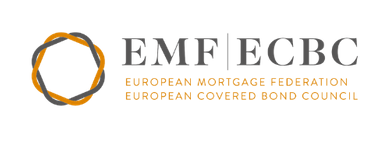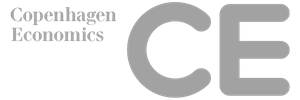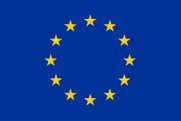The NEEM Hub Consortium Members
The consortium behind the project is comprised of highly specialised experts from a range of fields involved in the promotion of energy renovations, finance and economics.
The solutions developed by the consortium have been tested as Minimum-Viable-Products with-in two of the largest Financial Institutions in the Nordics covering some 25% of all mortgage as-sets in the Nordics market, Nordea and Swedbank, and Hemma, a Swedish green fintech mort-gage lender. This allowed the developed core solution to be implemented and tested in real consumer settings.
As consortium leaders, Copenhagen Economics are proud to direct such a distinguished team to address the issue of scaling up lending to energy renovations in the Nordics.
Our expertise within climate and energy market economics will help in the creation of targeted tools for identifying customers in need of energy renovations, and our proven abilities in financial economics will ensure a smooth financial value chain, including proper risk management, to de-liver green loans to end-customers.
We look forward to a rewarding collaboration and to making a tangible contribution to the sustainability of civil society.
As part of the largest financial group in the Nordic countries, Nordea has tested solutions from the Hub to ensure their robustness in the real world. This involves capturing feedback from Nordea customers to ensure the measures are effective and see where we can improve and scale the process.
Nordea has also shared its expertise within Sustainability with the Hub to increase the overall knowledge about barriers and facilitate the core solution that effectively addresses these barriers.
The core solution has been disseminated through Nordea's large network to assist the hub in capturing valuable feedback.
With some 7.25 million retail customers and 544,000 corporate customers, Swedbank is well placed to offer support and advise people on how to invest in being more energy efficient, both now and in the future.
Swedbank has aided in enabling people to access sustainable mortgages and housing by communicating with Swedbank customers to identify key steps in developing the core solution.
An active partner in making the Nordic region a world leader for energy-efficient solutions regarding real estate and buildings, Swedbank has also connected with other important specialist stakeholders on behalf of the Hub.
Hemma was founded on the idea of creating financial incentives for households to make big, impactful investments in climate-smart living. Hemma wants to ensure clear economic incentives for households to invest in energy efficiency and renewable energy.
Hemma has supported the Hub's activities in facilitating green lending to private individuals and providing a focus on how to drive investment in energy efficiency and renewable energy.
Hemma has also helped to deliver the processes and data to assess projects and report on energy savings post-installation.
Behavioural Advisory has applied its knowledge within behavioural economics and has taken the lead on developing optimised guidance to initiate renovations, where they have identified behavioural barriers to a successful energy efficiency mortgage market and how to overcome them.
Furthermore, Behavioural Advisory has been in charge of evaluating the results of the market demonstration and drafting the four summarising blueprint reports.
The overarching aim of the EMF is to ensure a sustainable housing environment for European Union (EU) citizens. To this end, they are the key talking partner of the European Commission, the European Parliament, the Council of the EU, the European Banking Authority, the European Central Bank and the Basel Committee on Banking Supervision on all mortgage industry-related questions.
Their role in the NEEM Hub is to provide broad expertise in energy efficiency mortgages and engage in open dialogue with EU policymakers on sustainable finance. in addition to this, the EMF has assisted in promoting the consortium's findings and helped mobilise capital markets in the Nordics.
They have also been in charge of implementing ESG best practices in the Nordic financial sector to support the EU Green Deal and Renovation Wave Strategy.
The overall objective of the GDFA is to leverage digital technologies & innovations to enhance financing for sustainable development. In order to achieve this objective, the Alliance focuses on driving change by improving the knowledgebase through research and analysis of leading sustainable digital finance practices and potential as well as creating a network of fintech, financial players, policymakers and other stakeholders that collaborate and promote sustainable digital finance practices at national and international levels.
The GDFA supports action at the country level to pilot innovative approaches and take successes to scale and their role in the NEEM Hub has been to provide detailed data mapping of the foundations available for remote screening, assisted in the development of a plan to retrofit real-estate, designed prototype algorithms for testing by the banks and used their knowledge of digital technology to advance the concept of sustainable finance amongst consumers.
DTU Compute does scientific research within applied mathematics and computer science and is a frontier within the area. In the Section for Dynamical Systems, research on data-driven modelling techniques has been applied to support the green energy transition for several years. This includes techniques for energy forecasting, system control, operational optimisation, and systems identification.
In NEEM, DTU Compute has - in close collaboration with the data provider Center Denmark - utilised modelling techniques to map the energy efficiency of banks’ building portfolios’ while separating building-, occupants-, and weather-related effects. This has allowed the consortium to give house owners more specific recommendations on whether an energy renovation is needed – and if yes, which concrete renovations (i.e., better insulation) is needed.
Center Denmark has acted as an in-kind contributor to GDFA in the NEEM project. Center Denmark hosts, manages and maintains a data lake which is available in Denmark and contains energy and building data on 400.000 households. This data-lake harvests data across the energy sector from water utilities, district heating and electricity companies, among others, and is made available in combination with building parameter data, energy label data and localized weather data.
Center Denmark has contributed to the NEEM Hub by providing data and working to further identify and develop data gathering and APIs in the Nordics in the NEEM project. The data provided by Center Denmark has been used to test the solutions developed by the consortium.


















